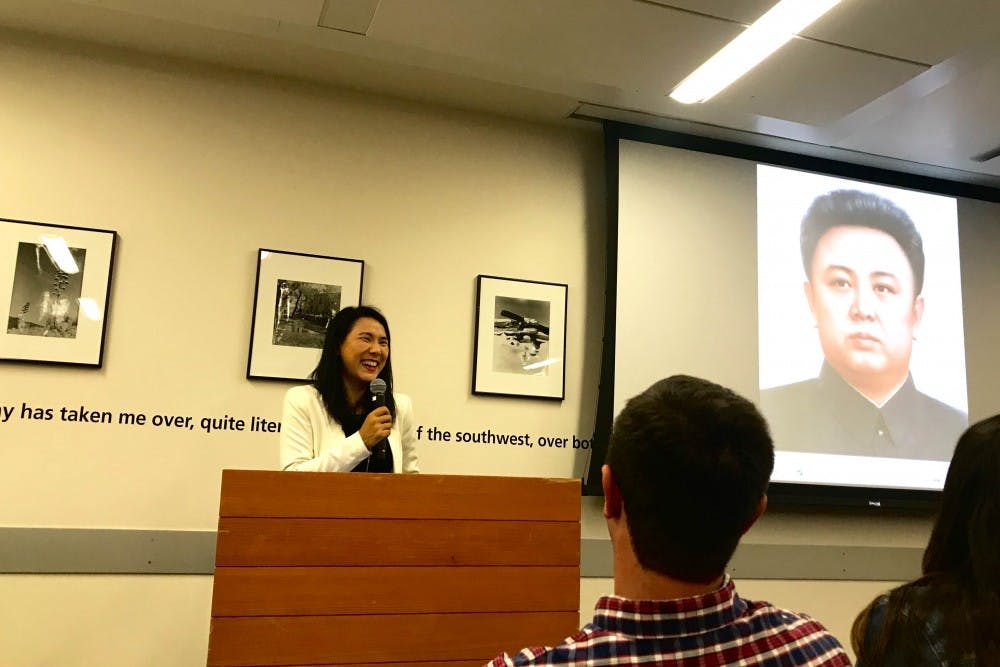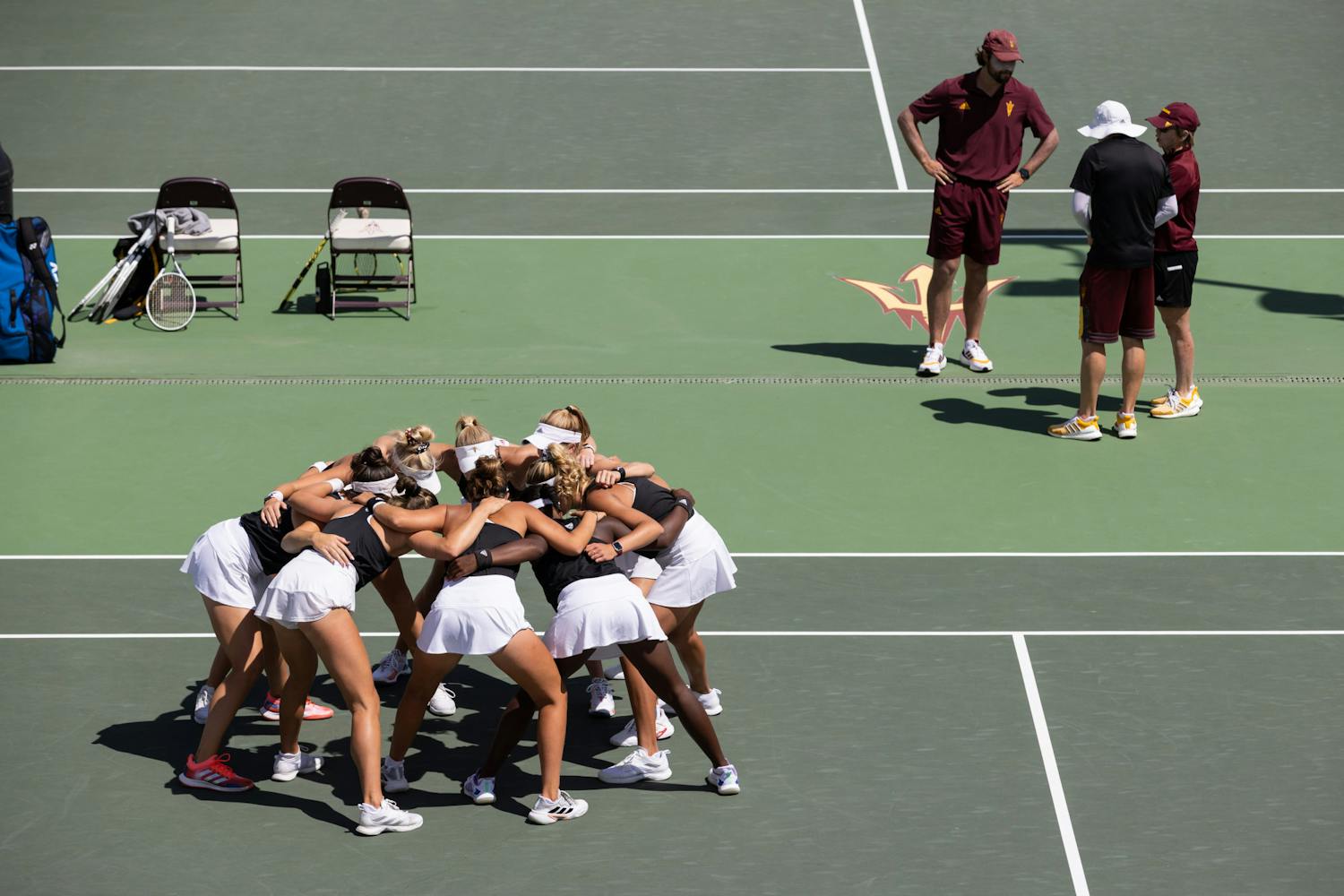The general advice usually given to aspiring student journalists is to ask questions and lots of them. These were not the words of wisdom given by the only undercover journalist to have lived inside the borders of North Korea.
In fact, it was quite the opposite.
During a lecture on the Tempe campus on Jan. 24, Suki Kim, an ASU Future of War Fellow at New America, discussed her time undercover in North Korea for six months, in which she lived among the country's elite and future leaders and witnessed the final year of Kim Jong Il's reign.
“I don’t ask a lot of questions. You don’t want to arouse suspicion," she said. "The more questions you ask, they won’t want you with them.”
Kim, author of the New York Times best-seller "Without You, There is No Us: Undercover Among the Sons of North Korea's Elite," has drawn millions of viewers from her TED Talk in which she recounts how she posed as a missionary at a North Korean school while secretly gathering information to expose to the world.
During her time in Pyongyang, North Korea in 2011, during the regime of dictator Kim Jong Il, Kim was in charge of teaching English to the elite 19-year-old men of North Korea.
She spent every waking day with these men, attempting to find out more about this isolated country while under the constant watchful eye of the North Korean government.
Originally from Seoul, South Korea, Kim initially had a hard time understanding the constant presence of the Great Leader in every aspect of life when she lived in North Korea.
However, her obsession with North Korea didn’t start until she was fully immersed in the remote country.
“As a writer, as Korean, as a daughter of a mother whose brother was kidnapped, I think that I felt a tremendous responsibility that I needed to tell this story,” Kim said. “This really is what set off this unending obsession with North Korea.”
Due to the extreme consequences that Kim could have faced if her true motives were revealed, she was forced to act with caution when documenting her time in the regime. She recalled how she only wrote early in the morning and kept her USB sticks, which held all of her work, on her body at all times.
Despite the dangers of her deceptions, Kim said she believes it was what she needed to do.
“There’s a fine line between undercover journalism and spying,” Kim said. “Undercover journalism is generally not trusted because sometimes it’s ‘gotcha’ journalism. But undercover journalism, under the rules of a society like this, is used when no other method can work and when the matter is of great importance.”
Rick Rodriguez, Southwest borderlands initiative professor at the Walter Cronkite School of Journalism and Mass Communication, said this type of reporting is a controversial strategy that many journalists tend to steer clear of when trying to obtain information.
"Journalists are trying to build credibility as truth-tellers, and undercover reporting starts out by seeking the truth by telling a lie," he said. "You could argue that the end justifies the means and maybe sometimes you can. But every time you’re going to approach undercover reporting, you really have to think: is there any other way for me to get the information?"
Even though Rodriguez prefers to be transparent about his role in the media, he acknowledged that in some cases, such as Kim's, there really is no other way to expose the truth.
"I don’t know if there is any other way to get information on North Korea," Rodriguez said. "She did give insight in a way that we probably wouldn’t have had if had she not done what she did. So I think, ethically, you could argue that what she did was of value to report on."
Because of Kim’s powerful experience like no other, she’s been awarded Guggenheim, Fulbright, and Open Society fellowships for her work.
In addition, she was also named an ASU Future of War Fellow at New America and was one of six people chosen to speak at ASU’s Spring Speaker Series 2019.
Daniel Rothenberg, co-director of the Center on the Future of War and ASU professor of practice for the school of politics and global studies, said the New America Fellows is a very competitive process which receives about 500 applicants. Only about 15 of those applicants are selected.
“One of the things that makes Suki such a special member of our community is that she is a unique writer,” Rothenberg said. “There’s nobody doing the kind of work she’s doing, and we try to identify and celebrate the kind of work people like her are doing.”
Reach the reporter at anardizz@asu.edu and follow @ariellanardizzi on twitter.
Like The State Press on Facebook and follow @statepress on Twitter.




